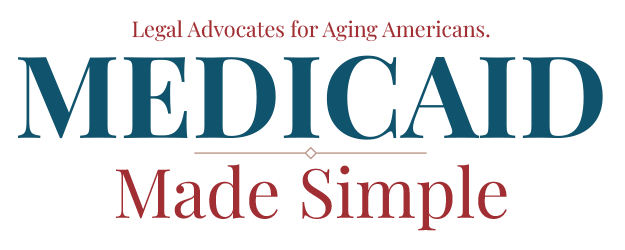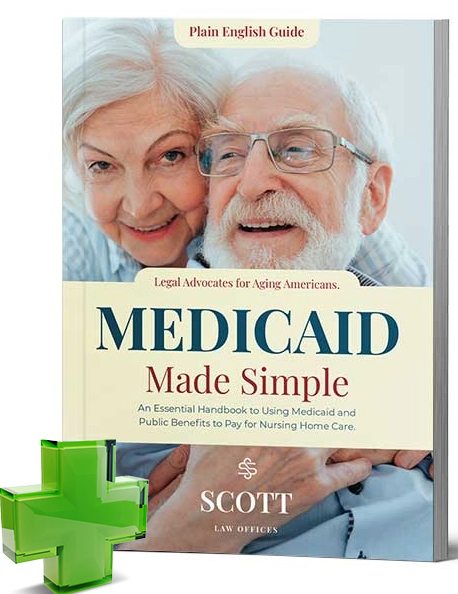Medicaid Application for Nursing Home Care
If your parent or spouse has just moved to a nursing home, you may have heard that Medicaid can help cover the cost. However, completing the Medicaid application for nursing home care is more complex than it looks. A single error or missed form can delay benefits or lead to denial.
Whether you're facing a $12,000 monthly bill or trying to avoid losing the family home, you need to get this process right. This guide will walk you through what's involved and how a Medicaid attorney can help you protect your family.

Why the Application Process Is So Complicated
Applying for Medicaid in Florida isn't just a form. It's a legal, financial, and administrative process that includes:
- Verifying income and assets
- Disclosing five years of financial transactions
- Applying to the Florida Department of Children and Families (DCF)
- Department of Children and Families (DCF)
- Setting up legal documents like a power of attorney or a qualified income trust (QIT)
- Understanding Medicaid penalties tied to past gifts or transfers
That is why many families start the process and then get stuck. It is also important to note that Florida Medicaid no longer offers retroactive payments for long-term care. If your loved one is already in a nursing home, time is not on your side.
What Happens If You Submit the Wrong Information
Every month you delay or get denied means thousands in out-of-pocket nursing home bills. Mistakes I've seen from rushed or DIY applications include:
- Missing income documentation
- Failing to disclose or protect assets
- Not funding a trust properly
- Assuming a will or living trust protects you (it doesn't)
- Submitting paperwork without legal authority
In Florida, even being one dollar over the income limit can cause a denial. The nursing home Medicaid application is not where you want to guess.
What You Need for a Medicaid Nursing Home Application
To complete the Medicaid nursing home application in Florida, you will need:
- The patient's Social Security and Medicaid ID (if applicable)
- Proof of monthly income (Social Security, pensions, annuities)
- Complete list of assets, including bank accounts, investments, and life insurance
- Home ownership and real estate details
- Financial history for the last 60 months
- Durable Power of Attorney
- QIT if income exceeds Florida's cap
You can begin reviewing official requirements on the Florida DCF Medicaid site. However, many families quickly realize they need legal help to move forward confidently.
How a Medicaid Attorney Simplifies the Process
When you're managing a nursing home admission, doctors, and daily stress, you don't have time to become an expert in Medicaid law. My role is to:
- Handle all paperwork and DCF correspondence
- Ensure proper documentation of income and assets
- Account for past financial transfers that could cause a denial
- Set up trusts and financial structures that meet eligibility
- Help spouses retain income and keep the family home
Even if you already applied and received a denial, we can often fix the problem and resubmit with corrections.
When to Apply for Medicaid
Ideally, you apply as soon as your loved one enters a skilled nursing facility. Waiting longer can be costly. If you're already spending thousands on care, stop and get legal guidance now.
Common Myths About Medicaid and Nursing Home Care
Many families delay because they've heard things like:
- "You have to spend all your money first."
- "It's too late once they're in a nursing home."
- "We make too much money to qualify."
These myths are not just wrong. They cost families tens of thousands of dollars. With the right strategy, Medicaid can pay for care while you legally protect your home, savings, and spouse's income.
FAQs: Applying for Nursing Home Medicaid
How long does it take to get approved for Medicaid in Florida?
Approval times vary, but typically range from 45 to 90 days. Errors or missing documentation can stretch that timeline significantly.
Can Medicaid take the house if my parent is in a nursing home?
Not while the applicant or their spouse lives there. But without legal planning, Medicaid estate recovery could claim more assets after the individual's death. A proper legal strategy can avoid this outcome.
Is it too late if my parent is already in a nursing home?
No. It is a common situation. It's called Medicaid crisis planning, and it's often possible to qualify quickly and preserve assets even after admission.
Start the Application With Confidence
If your parent or spouse is already in a skilled nursing facility, don't wait to get help. Every day of delay could cost your family thousands. I'll help you complete the Medicaid application correctly, protect your assets, and avoid the common traps that cause families to lose more than they should.
You don't have to do this alone. Schedule your Medicaid consultation now and take the first step toward peace of mind.


"Sean Scott has been instrumental for my family, aiding my elderly parents and recently, my wife with Alzheimer’s. His team's unparalleled expertise and compassion have been a beacon during our toughest times. I consistently recommend Sean to fellow caregivers for his invaluable support and guidance."
Get Your Free PDF
Fill out the form to receive your free PDF on Medicaid Planning.


